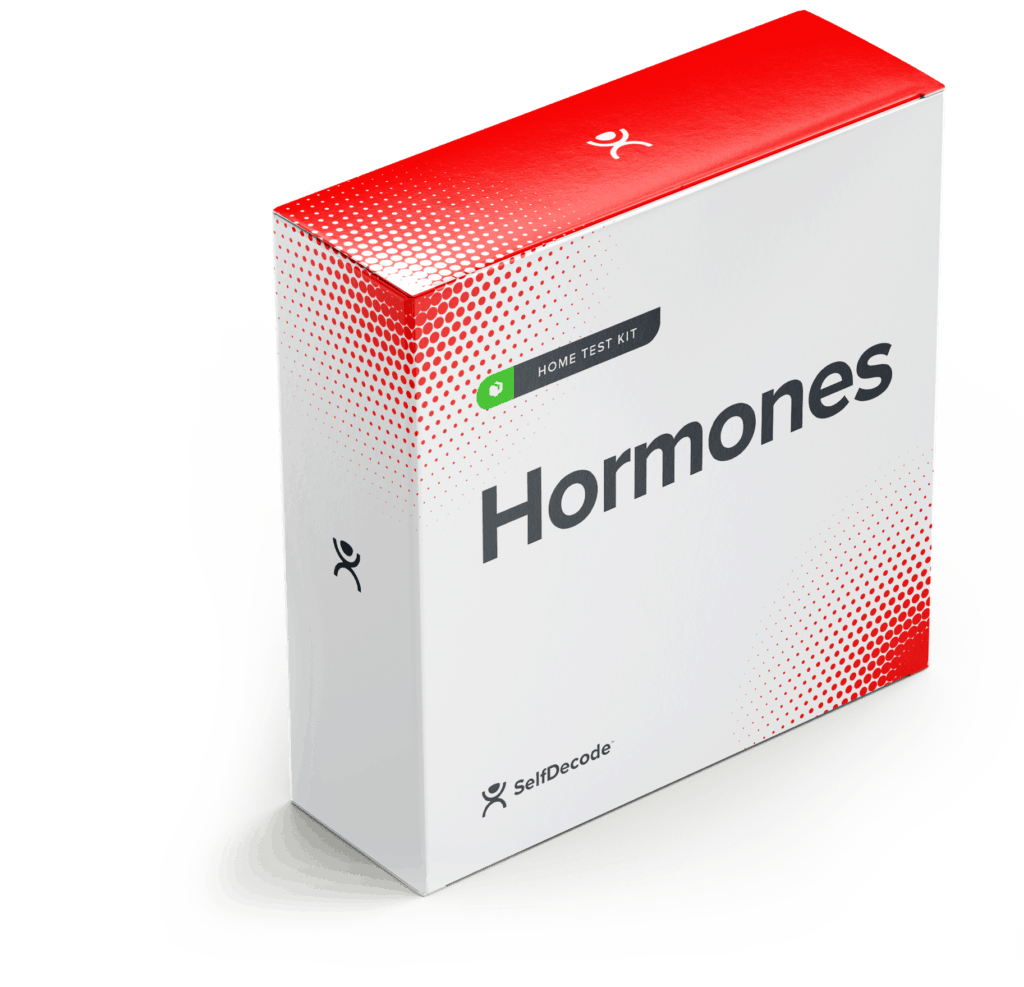If you’ve ever felt extreme fatigue or just didn’t have the energy to get through the day, then chances are you may have experienced just one of the symptoms that are associated with low testosterone. Although testosterone in men is usually thought to only affect sexual function, this hormone actually has a HUGE impact on more bodily functions than you might think.
Is your body being affected by low or high levels of testosterone? We’ll go over symptoms of each – and if you think you might be suffering from a testosterone imbalance, you can get answers from our Hormone Test Kit from the comfort of your own home. But first, what exactly does testosterone do for your body?

Why is testosterone in men important?
Because testosterone is a sex hormone, it’s a common misconception that it’s only used by the body to aid in the development of your reproductive organs. But testosterone isn’t only produced by the testes – it’s also produced in the adrenal glands. Why? Because testosterone has a hand in A LOT more than just your reproductive health.
Testosterone plays an important role in:
- Bone density
- Distribution of body fat
- Body & facial hair
- Muscle strength & growth
- Mood
- Sperm production
- Red blood cell production
- Libido
Because testosterone is so important to men’s health, an imbalance can cause a wide array of symptoms that can lead to even more issues in the future. But how can you tell if your testosterone levels are off?
The first step is to start listening to what your body is trying to tell you.
What low testosterone in men looks like
Signs of low testosterone in men can vary based on age and other factors.
Low testosterone symptoms in men include:
- Low libido
- Mood swings & irritability
- Loss of muscle mass
- Fatigue
- Brain fog
- Increase in body fat
- Erectile dysfunction
These symptoms can impact both self-esteem and quality of life. But what is the underlying cause of low testosterone levels in men? Once these symptoms arise, there are a few things that can be causing them.
What is the cause of low testosterone in men?
- Autoimmune disorders can be to blame. Some autoimmune disorders like rheumatoid arthritis and lupus can cause testicular failure, and are known to sometimes cause low levels of testosterone in men.
- Getting too much exercise or abusing synthetic steroids. Over-training at the gym can actually cause low testosterone levels, and synthetic steroids disrupt your body’s normal production of hormones, leading to decreased function of the testes and resulting in low testosterone levels.
What high testosterone in men looks like
Just like low testosterone, high testosterone levels can cause many different symptoms in men’s bodies. These symptoms include:
- Acne
- Increase in muscle mass
- Feeling more irritable
- Aggressive & risk-taking behavior
- Lowered sperm count
- Increased libido
Even with these symptoms, you might think it’s obvious that high testosterone is to blame. But the underlying cause may still be a mystery for some.
What is the cause of high testosterone in men?
- High levels of testosterone can be caused by tumors found in the adrenal glands or testicles.
- Men who use and/or abuse steroids may see an increase in testosterone, resulting in one or more of the symptoms mentioned above.
How to find balance
Men should make sure that their testosterone imbalance is addressed, because anything other than normal levels of testosterone can lead to more serious problems, like issues with heart health, and infertility if left untreated.
If you think you might have high or low levels of testosterone, don’t worry – SelfDecode makes it easy to check your testosterone levels with our at-home Hormone Test Kit. From there, you’ll have the information you need to take the next step towards optimizing your health!





